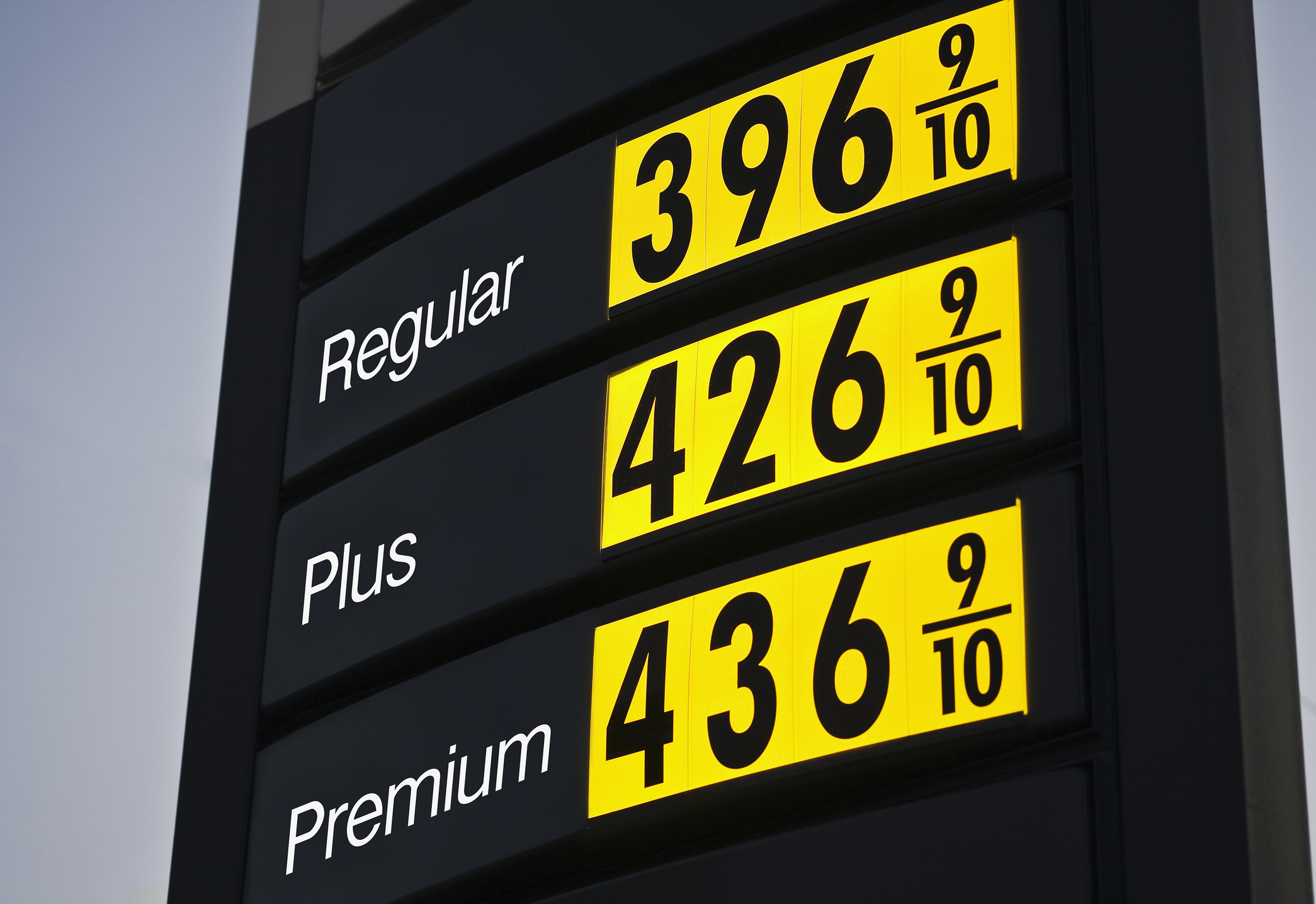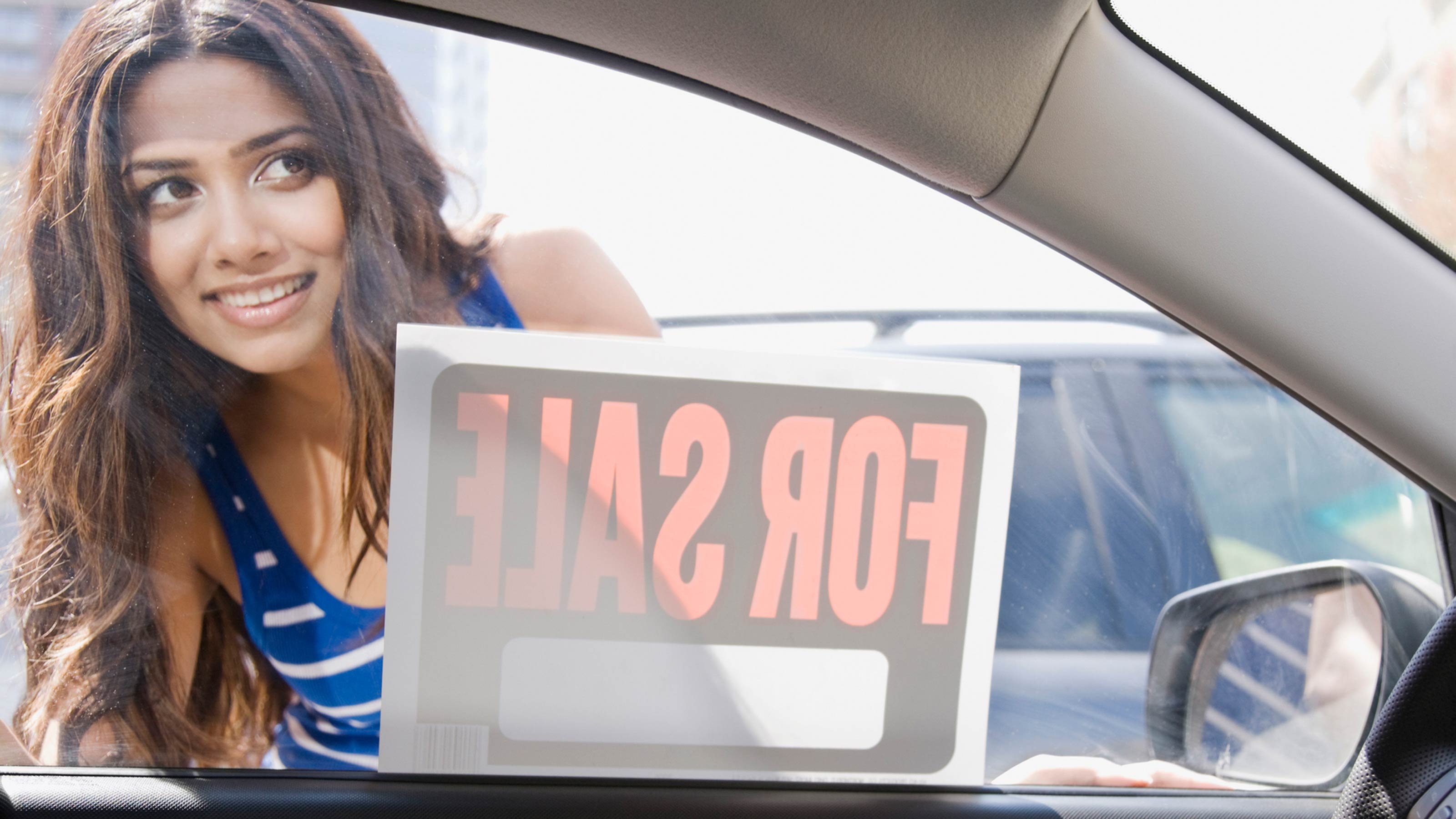Incentives for Car Buyers
The economic-stimulus package provides a tax break, dealers have bargains, and the government's "cash for clunkers" program offers vouchers to help people buy more fuel-efficient vehicles.

Profit and prosper with the best of Kiplinger's advice on investing, taxes, retirement, personal finance and much more. Delivered daily. Enter your email in the box and click Sign Me Up.
You are now subscribed
Your newsletter sign-up was successful
Want to add more newsletters?

Delivered daily
Kiplinger Today
Profit and prosper with the best of Kiplinger's advice on investing, taxes, retirement, personal finance and much more delivered daily. Smart money moves start here.

Sent five days a week
Kiplinger A Step Ahead
Get practical help to make better financial decisions in your everyday life, from spending to savings on top deals.

Delivered daily
Kiplinger Closing Bell
Get today's biggest financial and investing headlines delivered to your inbox every day the U.S. stock market is open.

Sent twice a week
Kiplinger Adviser Intel
Financial pros across the country share best practices and fresh tactics to preserve and grow your wealth.

Delivered weekly
Kiplinger Tax Tips
Trim your federal and state tax bills with practical tax-planning and tax-cutting strategies.

Sent twice a week
Kiplinger Retirement Tips
Your twice-a-week guide to planning and enjoying a financially secure and richly rewarding retirement

Sent bimonthly.
Kiplinger Adviser Angle
Insights for advisers, wealth managers and other financial professionals.

Sent twice a week
Kiplinger Investing Weekly
Your twice-a-week roundup of promising stocks, funds, companies and industries you should consider, ones you should avoid, and why.

Sent weekly for six weeks
Kiplinger Invest for Retirement
Your step-by-step six-part series on how to invest for retirement, from devising a successful strategy to exactly which investments to choose.
We have a son starting college, and he needs a vehicle. Are there any tax (or other) incentives we can benefit from if we purchase a new or used car?
The economic-stimulus package does provide a tax break for people who buy new cars between February 17, 2009, and December 31, 2009. They can write off state and local sales taxes and excise taxes paid on up to $49,500 of a vehicle's cost. (The tax break also applies to light trucks, motor homes and motorcycles.)
| Row 0 - Cell 0 | Car Buyer's Guide |
| Row 1 - Cell 0 | 10 Best Values in Used Cars |
| Row 2 - Cell 0 | Can You Get Cash for Your Clunker? |
The new deduction does not apply to used-car purchases. And it phases out for single taxpayers who have adjusted gross income between $125,000 and $135,000 and for married couples filing a joint return who have AGI between $250,000 and $260,000. If your AGI is halfway through the phase-out range, for example, your sales-tax deduction would be cut in half.
From just $107.88 $24.99 for Kiplinger Personal Finance
Become a smarter, better informed investor. Subscribe from just $107.88 $24.99, plus get up to 4 Special Issues

Sign up for Kiplinger’s Free Newsletters
Profit and prosper with the best of expert advice on investing, taxes, retirement, personal finance and more - straight to your e-mail.
Profit and prosper with the best of expert advice - straight to your e-mail.
If your son buys the car, his AGI will come into play for this restriction; if you buy it for him, your AGI will be used. Also note that if your son buys the car, he'll deduct the tax on his return.
The deduction can be claimed on 2009 tax returns regardless of whether you itemize or claim the standard deduction. However, if you itemize and deduct state sales taxes rather than state income taxes (because you live in a state that doesn't have an income tax, for example), this new break has no value for you. You already get to deduct the sales tax on cars (even if you buy a used one), and Congress made it clear that no double-dipping is allowed.
If you live in a state that doesn't have a sales tax -- such as Alaska, Delaware, Hawaii, Montana, New Hampshire or Oregon -- you still get a tax break if your state imposes a flat fee on the purchase of vehicles or a fee based on the price you pay. If you pay such a fee when you buy a new car between February 17, 2009, and December 31, 2009, you can deduct it, subject to the same income restrictions that apply to the sales-tax write-off.
In addition to the new tax breaks, it's a particularly good time to shop for a new car -- especially at GM dealers that are closing. See Grab a Deal on a GM Vehicle for more information. (Chrysler is offering some good incentives now, too, but the best deals were available before the company closed 789 dealerships on June 9).
For help finding a new car, see our Car Buyer's Guide. For advice on buying a car for kids, see Edmunds.com's Young Drivers Guide.
Although you can't get the economic-stimulus tax write-off for used cars, you can get some good deals. See our 10 Best Values in Used Cars for 2009 slide show. Also, if your son has an old gas-guzzling car that you don't trust as a college car, there's a chance you could be eligible for a voucher to help you buy a more fuel-efficient car through the government's new "Cash for Clunkers" program. For more information on how the program works, see Don't Count on Cash for Clunkers.
Profit and prosper with the best of Kiplinger's advice on investing, taxes, retirement, personal finance and much more. Delivered daily. Enter your email in the box and click Sign Me Up.

As the "Ask Kim" columnist for Kiplinger's Personal Finance, Lankford receives hundreds of personal finance questions from readers every month. She is the author of Rescue Your Financial Life (McGraw-Hill, 2003), The Insurance Maze: How You Can Save Money on Insurance -- and Still Get the Coverage You Need (Kaplan, 2006), Kiplinger's Ask Kim for Money Smart Solutions (Kaplan, 2007) and The Kiplinger/BBB Personal Finance Guide for Military Families. She is frequently featured as a financial expert on television and radio, including NBC's Today Show, CNN, CNBC and National Public Radio.
-
 How Much It Costs to Host a Super Bowl Party in 2026
How Much It Costs to Host a Super Bowl Party in 2026Hosting a Super Bowl party in 2026 could cost you. Here's a breakdown of food, drink and entertainment costs — plus ways to save.
-
 3 Reasons to Use a 5-Year CD As You Approach Retirement
3 Reasons to Use a 5-Year CD As You Approach RetirementA five-year CD can help you reach other milestones as you approach retirement.
-
 Your Adult Kids Are Doing Fine. Is It Time To Spend Some of Their Inheritance?
Your Adult Kids Are Doing Fine. Is It Time To Spend Some of Their Inheritance?If your kids are successful, do they need an inheritance? Ask yourself these four questions before passing down another dollar.
-
 10 Things You Should Know About Buying a Car Today, Even if You've Bought Before
10 Things You Should Know About Buying a Car Today, Even if You've Bought BeforeIf buying a car is on your to-do list, and it's been a while since you went shopping for a new one, this guide will help avoid any nasty shocks in the showroom.
-
 Get the Best Car Deal in Retirement: Here's the Trick
Get the Best Car Deal in Retirement: Here's the TrickPlanning on shopping for a new car this Labor Day weekend? Here’s how to haggle for a better price, even though you're retired.
-
 7 Gas-Saving Tips That Actually Work
7 Gas-Saving Tips That Actually WorkThese are gas-saving tips that will actually work for you and your car this year.
-
 Want to Lease an EV? The Tax Credit 'Loophole' for That Is Going Away Soon
Want to Lease an EV? The Tax Credit 'Loophole' for That Is Going Away SoonTax Credits If you are deciding whether to lease or buy an electric vehicle, here is what you need to know about how the EV lease tax credit works now that it will be eliminated under Trump's new tax law.
-
 Car Buying in a Topsy-Turvy Market
Car Buying in a Topsy-Turvy MarketYou need a new car? Good luck with that! What should you do? We've got some answers.
-
 Watch Out for Flood-Damaged Cars from Hurricane Ian
Watch Out for Flood-Damaged Cars from Hurricane IanBuying & Leasing a Car In the wake of Hurricane Ian, more flood-damaged cars may hit the market. Car prices may rise further because of increased demand as well.
-
 Car Buyers: The 3-Day Grace Period Is Just a Myth!
Car Buyers: The 3-Day Grace Period Is Just a Myth!Buying & Leasing a Car Many car buyers think they have three days after making a purchase to return a car. Here’s where they’re going wrong, and what they should do instead to get a decent used car.
-
 PODCAST: Car-Buying in an Inflated Market with Jenni Newman
PODCAST: Car-Buying in an Inflated Market with Jenni NewmanBuying & Leasing a Car With cars both scarce and expensive these days, what to do if you want – or need – a new ride? Car-buying strategist Jenni Newman of Cars.com shares some tips. Also, more on the magical 9% savings bond.